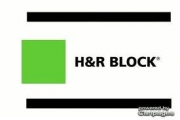Tax Tips — Caring For Your Aging Parents
Tax time is getting closer than we think (2015 deadline to file is April 30) and The Nelson Daily, with help from H&R Block, is providing tips to the public leading up to the final day of filing to Revenue Canada.
Today the focus is on Caring for aging parents.
Whether you are caring for your aging parents or just assisting them with their taxes, here are some tips to keep in mind:
- File a tax return: Even if they did not earn an income, they could be entitled to other credits, deductions and benefits that are triggered once you file a tax return. For example, they need to file a tax return to receive the Guaranteed Income Supplement (GIS). And filing late could interrupt the GIS benefit.
- Split pension income and save: Seniors are allowed to split up to half of their eligible pension income with a spouse or common-law partner. Income splitting can mean a significant tax reduction and when the lower-income spouse has very little income, the tax savings can be substantial.
- Transfer amounts: If one parent is unable to completely offset his or her age amount, pension income and disability amount against tax payable, you can transfer their unused portion to the other parent’s return.
- Medical expenses: It is usually advantageous for medical expenses to be claimed by the lower income spouse, assuming they have tax payable against which to offset them. If your parents travelled to another country and purchased medical insurance for the trip, it is considered a medical expense. If they traveled to obtain medical treatment that was not available where they live, they may be able to claim the cost of transportation, meals and accommodation depending on how far they needed to travel.
- Benefits for caregivers: If your parent or parents are 65 or over, have less than $20,002 in income and are living with you, you should be able to claim the caregiver amount. The key is that they must live with you. Sending money from afar to support them does not qualify. You can also claim parents of any age if they are dependent on you due to an infirmity. In this case the income threshold will be $22,060. The caregiver amount is increased by the $2,058 family caregiver amount when the dependant is infirm.
- Disability Tax Credit: If your parent qualifies for the Disability Tax Credit but does not have sufficient taxable income to take advantage of it, they may be able to transfer the unused amount to you. They must depend on you for all or some of the basic necessities of life for the transfer to be allowed.
- Attendant care paid to a retirement home: A senior who is eligible for the Disability Tax Credit can claim this amount as a medical expense. If they do not qualify for the disability amount, a medical practitioner must certify in writing that the person needs a full-time attendant due to mental or physical infirmity and will likely continue to be dependent on others for the long term. The retirement home would need to provide an invoice detailing the amount paid for attendant care. Services that can be included as a medical expense are housekeeping, laundry, transportation and meal preparation. Rent and food expenses are not covered.
- Nursing home expenses: For full-time care in a nursing home, there is no limit on the total expenses that your parents can claim as medical expenses for themselves. If you pay for your parents’ nursing home fees, you may be able to claim them as a medical expense however you will be subject to limits. It is important to know however that you cannot claim both nursing home fees and the disability tax credit so it may be more beneficial to restrict your claim to the attendant care portion of the fees to the extent that they do not exceed $10,000.
A tax professional at H&R Block at 810 Vernon Street, Nelson, BC, V1L 4G4 can talk about other credits and deductions that may affect you. Call (250) 354-4210 and ask for Ellen.

























